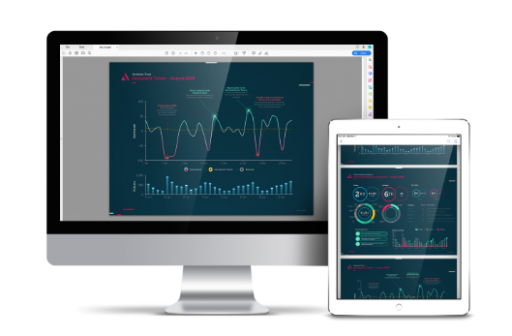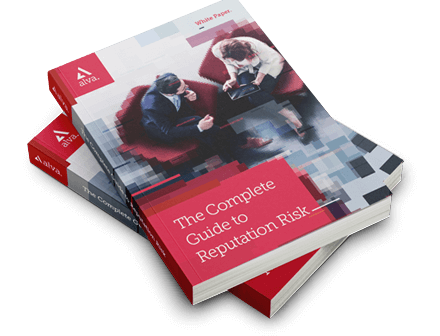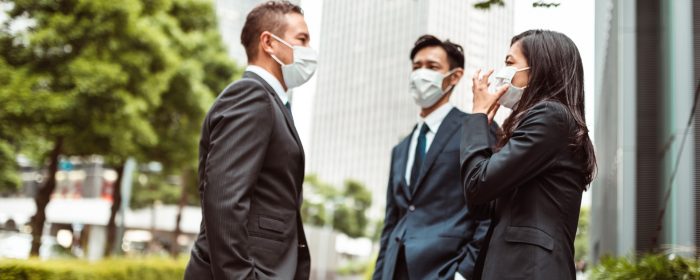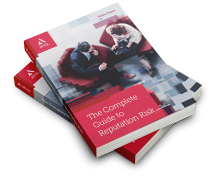COVID-19 and Reputation: Dividends
There is no shortage of analysis of the post-pandemic new normal, and what it will mean for business. But perhaps one of the less considered elements is the effect of Covid-19 on reputation. One product of the crisis is a greater scrutiny of organisations’ staffing decisions and the choices they make over whether to cut jobs or furlough staff and how that affects the paying of executive bonuses. Another relates to a company’s finances, and higher expectations of accountability for corporate decision-making. Consequently, how a business behaved during the time of Coronavirus will have a lasting reputational impact.
Nowhere is this new lens more sharply focused than on the arena of shareholder payouts and executive bonuses. Once the fodder of the business section, now dividend decisions are front-page news, and everyone has an opinion on how much should be paid out, and to whom.
As we start to move towards transitioning from the Existential Phase of the pandemic to the Recovery Phase, companies are having to make pragmatic decisions about how to move forward. As a result, half of the UK’s largest listed firms have chosen to reduce, defer, suspend or cancel shareholder returns, amounting to a £30bn reduction in dividend payments.
But with the economy contracting and interest rates threatening to fall below zero, investors are starting to suffer. Paying dividends would provide relief, especially to smaller shareholders, and also serve to bolster share price.
The choices are not clear-cut, either practically or reputationally. And for companies which have benefitted from taxpayer money by taking advantage of the government’s job retention scheme to furlough workers; receiving business rates holidays; or taking out a loan through the CCFF or CLBILS schemes, there is an added risk of public backlash if they make payments to private shareholders.
Different stances on Dividends
Tesco has been a particular target, paying out £635m despite accepting a £585m rates relief package. In response to the criticism, the government has retrospectively banned dividend payments by corporations that borrow through CLBILS. The supermarket defended its action, highlighting its £925m investment in safety measures, and insisting the payout would help support the pensions and savings plans of its many small investors. By contrast, rival Sainsbury’s – which also accepted a business rates holiday – has seemingly taken a different course, deferring a decision on its £174m dividend payout until the autumn, and cancelling executive bonuses citing market uncertainty.
Meanwhile, oil giant Royal Dutch Shell has cut its dividend for the first time since World War II in the face of falling fuel demand. What it argued was a prudent move designed to underpin the balance sheet hit investors hard and resulted in a sharp drop in share price. As a result, analysts may find it harder to recommend Shell shares in the near future. But in the longer term, some believe the company will have secured a stronger position than those which have chosen to pay out.
Some 140 of the UK’s listed companies have taken that path, committing to maintaining dividends, energy behemoth BP among them. Its announcement that it would stick with the price per share announced in February, before the realities of Covid-19 cut deep, was a relief to shareholders and UK income funds. But concerns were raised by analysts that it was the wrong move for future resilience, with BP’s net debt rising to $6bn. In response, the company committed to cut spending by $12bn.
Stakeholder capitalism
With the only certainty a continuation of market uncertainty, companies are having to navigate the new normal by balancing competing stakeholder priorities. While the pandemic has arguably helped the shift from shareholder primacy towards a broader focus on all stakeholders, listed companies cannot afford to ignore the needs of their shareholders. Loss of investment will be a major blow as organisations try to navigate the post-pandemic landscape. Which leaves them all facing difficult decisions over whether to pay out and keep investors on side, or shore up their finances in order to survive in the long term.
From a reputational viewpoint, if shareholder payouts are made at the expense of other stakeholders, it will colour perceptions of the business as it emerges from the crisis. Perhaps the time has come for CEOs to recognise that adapting to multi-stakeholder needs – caring for employees, offering customers high value products and excellent service, playing an active role in the community, and supporting local suppliers – is the best way to support shareholder value in the new normal.
Because companies that fail to adapt may find they have no profits to pay out.
Be part of the
Stakeholder Intelligence community











